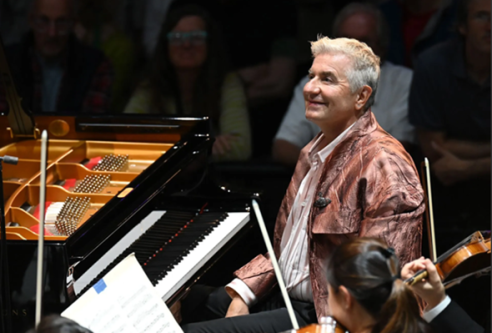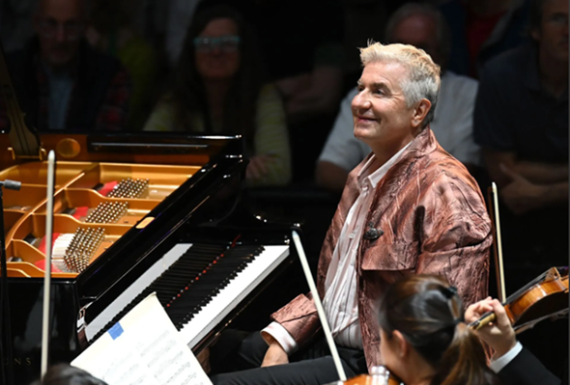 United Kingdom Debussy: Jean-Yves Thibaudet (piano). Barbican Hall, London, 24.1.2024. (JC)
United Kingdom Debussy: Jean-Yves Thibaudet (piano). Barbican Hall, London, 24.1.2024. (JC)

Debussy – Prèludes, Books I & II
Jean-Yves Thibaudet captivated his audience in a packed Barbican Hall with a dazzling performance of Debussy’s complete Preludes.
Under Thibaudet’s superbly nimble fingers, whose light touch was able to miraculously carry the softest sounds to the back of the great hall, Debussy’s miniatures performed consecutively as a set sounded like a series of fleeting impressions. I use the term ‘impressions’ without any negative connotations, because it is with a very precise touch and unique stylish flair that Thibaudet was able to conjure before us the essence in each of the Preludes, which vanished just as quickly as it came into being. Thibaudet’s Debussy Preludes were dramatic and exciting, and all the impressions created by each Prelude linked together seemed to tell one story. Oftentimes, Debussy’s Preludes are programmed as separate pieces, and I often hear performers trying to treat each Prelude as a complete piece in itself, embalming its performance with a reverence for Debussy’s meticulous craftsmanship and being very careful to create the perfect soundworld in which the melodies may bask; not Thibaudet. Instead of being careful in treating the Preludes as perfect little works, he sought extremes in his interpretation, rising to grand proportions in the stormy ‘Ce qu’a vu le vent d’ouest’ in the First Book, as well as creating a reverberating resonance in the infamous ‘La cathedral engloutie’.
I had a sense of seeing a picturesque village in which many things were happening simultaneously in Thibaudet’s performance of ‘Minstrels’, so strong was Thibaudet’s storytelling ability and his instinct in recreating the visual scene that first inspired Debussy. For Thibaudet, the essence of the Préludes lie not in their perfection, but in their ability to convey extramusical scenes, be in the smell and scent of ‘Les sons et les parfums tournent dans l’air du soir’, the tempestuousness of ‘Les collines d’Anacapri’ or the brilliance of ‘Feux d’artifice’. Therefore, he was never hindered by a sense of decorum to share his imagination and creativity, which seemed to be bursting at the seams, but ultimately demonstrating to the audience just how creative and imaginative Debussy was. This was very fresh to me, allowed me to see Debussy’s music in a different light, and renewed my interest in even the most popular tunes from the sets.
What was never lost on us through Thibaudet’s performance was Debussy’s sense of humour. Without too much of the reverence for Debussy’s perfectionist side, the humorous elements in the music came through unabated, almost making us laugh. This aspect of the performance made it feel almost like watching a play — an artistic genre in which interaction with the audience plays a big part, and humour is often a way to continue to gauge their interest — once again reminding me of how Debussy is aware of all these extramusical things in his own musical compositions.
Thibaudet’s performance was highly electrifying and entertaining, and really made you listen to Debussy’s music in a different way. A unique experience worth watching live.
Jeremy Chan
